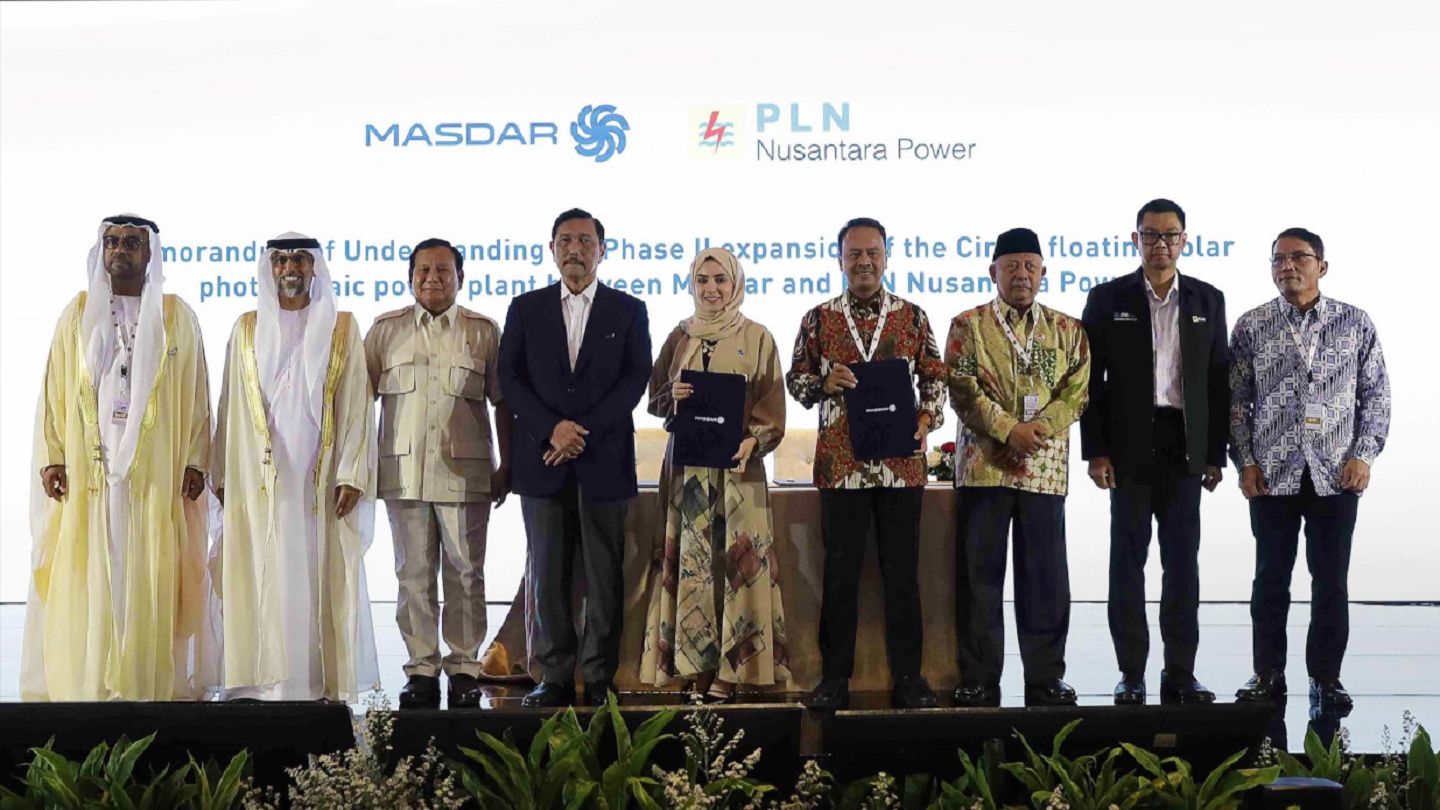
UAE-based energy company Masdar and PLN Nusantara Power (PLN NP) have reached an agreement to expand phase II of the Cirata floating photovoltaic (FPV) power plant in Indonesia by 500MW.
This builds on the initial 145MW phase of the project, situated in the Cirata reservoir in West Java, which is scheduled to begin operations later in 2023.
Indonesia’s Ministry of Public Works and Housing recently announced a regulatory move to further expand floating solar by 500MW on top of the initial capacity of 145MW.
The first phase of the project was developed by Masdar and PT PJB (now PLN NP) in a joint venture. It was built on a 250-hectare (ha) plot of the 6,200ha Cirata reservoir.
In January 2020, a power purchase agreement was reached for the floating solar plant.
The solar panels used in floating projects work efficiently due to the water’s cooling effect, and water evaporation is reduced.
Masdar CEO Mohamed Jameel Al Ramahi stated: “Masdar, the UAE and Indonesia are pushing the boundaries of innovation with the Cirata floating solar photovoltaic project, already the largest in the region at 145MW – and set to grow by an impressive additional 500MW as part of Phase II.
“Within the key strategic markets of South East Asia and Indonesia, Masdar is building on our productive partnership with PLN group to grow renewable energy capacity and support Indonesia’s ambitious net-zero objectives ahead of COP28 and beyond.”
Earlier in 2023, Masdar made its entry into geothermal energy through a strategic investment in Pertamina Geothermal Energy.
The country plans to increase its share of the renewables mix and has agreed to attain net-zero emissions by 2060 at the latest. It has committed to a 29% reduction in greenhouse gas emissions by 2030, and with international support aims to achieve a 41% reduction.



